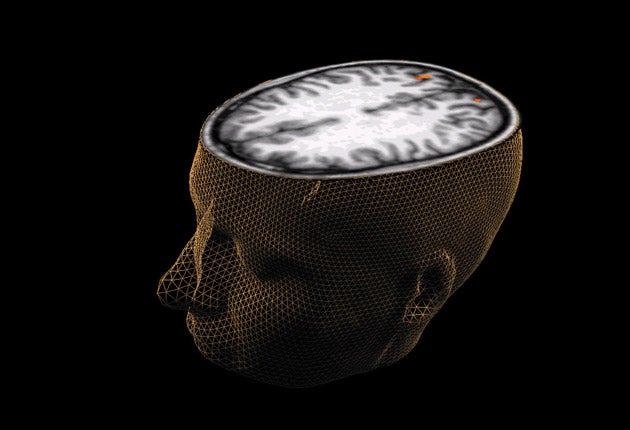Incognito: The Secret Lives of the Brain, By David Eagleman
Sometimes you just don't know what's going on in your head

Your support helps us to tell the story
From reproductive rights to climate change to Big Tech, The Independent is on the ground when the story is developing. Whether it's investigating the financials of Elon Musk's pro-Trump PAC or producing our latest documentary, 'The A Word', which shines a light on the American women fighting for reproductive rights, we know how important it is to parse out the facts from the messaging.
At such a critical moment in US history, we need reporters on the ground. Your donation allows us to keep sending journalists to speak to both sides of the story.
The Independent is trusted by Americans across the entire political spectrum. And unlike many other quality news outlets, we choose not to lock Americans out of our reporting and analysis with paywalls. We believe quality journalism should be available to everyone, paid for by those who can afford it.
Your support makes all the difference.When Galileo observed that we are not, in fact, at the centre of our solar system, man's initial shock at the dethronement gave way to an exponential increase in his awe at the vastness and complexity of the universe.
In Incognito, the neuroscientist David Eagleman argues that something analogous happened in the 20th century. What Freud intuited and neuroscience has confirmed is that the vast majority of your neural activity occurs at levels for which the conscious you, "the 'I' that flickers to life when you wake up in the morning", just doesn't have security clearance. "The conscious mind is not at the centre of the action in the brain; instead, it is far out on a distant edge, hearing but whispers of the activity .... A mere 400 years after our fall from the centre of the universe, we have experienced the fall from the centre of ourselves."
Things which seem to come naturally to you, such as instincts, appetites, perceptions, desires and motor functions, seem so, not because they don't require much brain activity, but because they're the product of neural sub-routines that run more efficiently when the conscious mind isn't invited to get involved. A large part of Incognito is dedicated to the ingenious experiments, fascinating behavioural quirks, and bizarre case studies from which we can nevertheless infer what's going on in there. For example, why can't you tickle yourself unless you're schizophrenic; how do Parkinson's medications cause compulsive gambling; and what's going on when a patient has Anton's syndrome (the failure to recognise one's own blindness), synaesthesia (the condition in which sensory perceptions are blended, such that one might hear a colour), or alien hand syndrome (which is much as it sounds, and disturbingly like a scene in The Evil Dead)?
There's another category of tasks which you used to have to perform consciously, but that you're now better at when you don't. Tying shoelaces, say, or catching a ball. According to some models, burning in the necessary neural circuitry is about all that the conscious part of the human mind was evolved for. In Eagleman's model, however, consciousness was needed in order to manage an increasing number of complex and competing neural sub-populations. This explains our impulse for coherent narratives, and why we're able to argue with ourselves, or talk ourselves into something.
If Eagleman's name is already familiar it will be for his bestselling 2009 book Sum, a wildly imaginative collection of short stories which purported to be about the afterlife but were actually profoundly sensitive to what it means to be human in the here and now. Incognito is a different kind of book, intended to explain his day job to a general reader – and as such, it is a shining example of lucid and easy-to-grasp science writing. Which isn't to say that it is reductionist ("By itself, the biology only gives partial insight"), nor that there's no space for poetic phrasing (information is carried by "flotilla of drifting molecules"). Nor does Eagleman feel bound by his field. Neuroscience is at a stage, he argues, where it can weigh in on age-old philosophical debates. So, Incognito asks where exactly – when our heads are so full of unconscious thoughts and hard-wired behaviours – free will is supposed to reside and, if it is missing, what does this mean for our legal system? It's a book about the things it is impossible to think about, and others that it is no longer possible not to.
Join our commenting forum
Join thought-provoking conversations, follow other Independent readers and see their replies
Comments